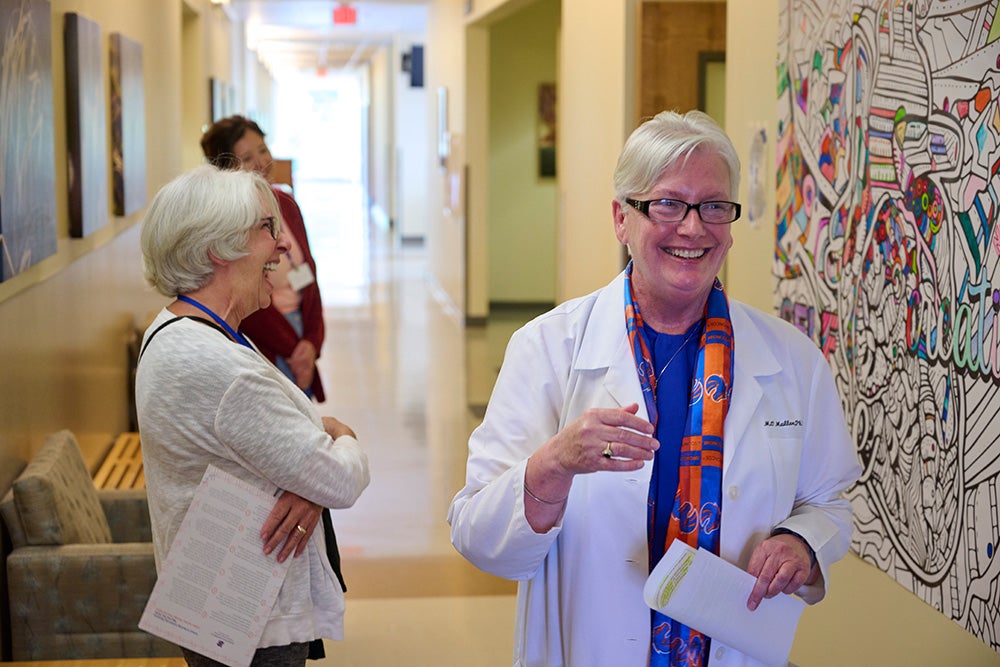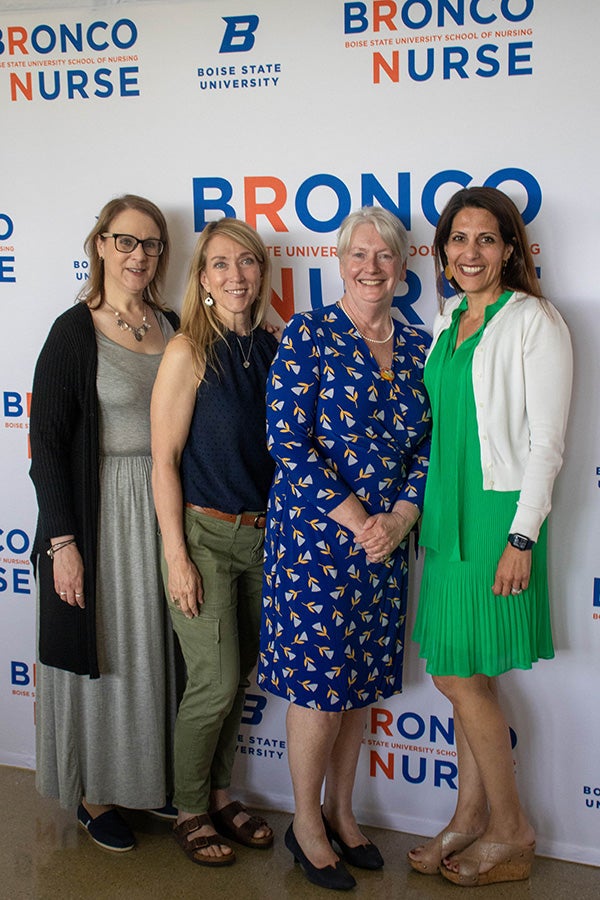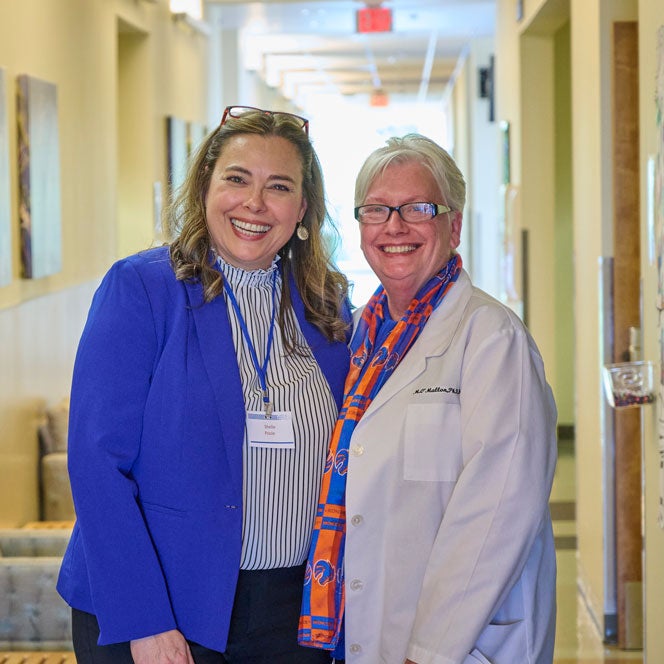Boise State faculty incorporate three elements into their role as professors: teaching, scholarship and service. For retiring associate professor and director of the RN-BS Completion program Marilyn O’Mallon, she found a service outlet through Faith Community Nursing. This kind of nursing indicates an approach to wellbeing from a faith-based or spiritual perspective.
“We are receptive to the needs of any religious affiliation, and any non-religious affiliation if that be the case,” O’Mallon said. “We want to meet the clients where they are spiritually.”

Care from faith community nurses can take various forms, but nurses are encouraged to serve where they’re already known and trusted. For O’Mallon, this meant Hope Lutheran Church in Eagle. Throughout the pandemic, she partnered with a task force in her church congregation to work on the logistics of keeping their large population of fragile, vulnerable and immunocompromised people socially connected and attending outdoor services rain, snow or sun.
She also served at the Boise Veterans Affairs (VA) hospital. O’Mallon worked for 16 years as a civilian nurse in military clinics and hospitals, and significant portions of her career were spent in Germany and Savannah, Georgia. Upon first moving to Boise, O’Mallon connected with the Boise VA hospital and volunteered to be a bedside companion for hospice and end-of-life patients. One particular young veteran was in end-of-life care and asked for a social companion, so O’Mallon spent time with her before she died.
“That was a very brief relationship because the veteran’s life was very short,” O’Mallon said. “But it was very beautiful, in the sense that she appreciated that this nurse was also affiliated with the military as an army spouse, and so we shared stories about Germany, family, nature, etc.”

O’Mallon also remotely worked for several years with an elderly widowed woman living in Florida. They first met in Germany in the 1980s and reconnected in 2018. O’Mallon spent many hours on the phone simply offering companionship, but as the relationship developed, O’Mallon went on to help her as a nurse advocate.
“She often said, ‘I don’t know what’s wrong with me, and I don’t understand what the discharge plan was,’” O’Mallon said. English is this woman’s second language, and with many simultaneous complex health issues – from depression to heart failure to risk of falling – O’Mallon was drawn to help her with more than social needs.
From the other side of the country, O’Mallon spent countless hours communicating by phone and email with the woman’s primary care physician, psychiatrist and nurses. Together, they worked through medication reconciliation and coordinated care between various providers including home health and physical therapy.
“For her age, she was on so many medications that really interacted with each other and maybe even contradicted each other,” O’Mallon said. “We saw the importance of provider-to-provider communication and for medication reconciliation, to really go through her medication profile to determine dosages and appropriate medications.”

O’Mallon was so struck by her experience working with this woman, she published a case study journal article examining best practices of palliative care for the frail elderly. O’Mallon then has the opportunity to present her work to Boise’s network of faith community nurses at the invitation of Cari Moodie, the Faith Community Nurse Coordinator at Saint Alphonsus Regional Medical Center.
In 2021, Moodie commended O’Mallon in a letter of recommendation, saying, “Dr. O’Mallon demonstrates outstanding service to our community and leadership in the field of faith community nursing. She is a role model to her colleagues in the Saint Alphonsus Faith Community Nursing Network.”
O’Mallon finds joy in her work, grateful for the way the School of Nursing’s holistic approach to nursing compliments her service as a faith community nurse.
“It’s all about caring for the person holistically, not just the physical needs,” O’Mallon said. “It means assessing the emotional, spiritual, psychological, social and financial needs of the individual to determine what the patient sees as the best plan of care for them.”